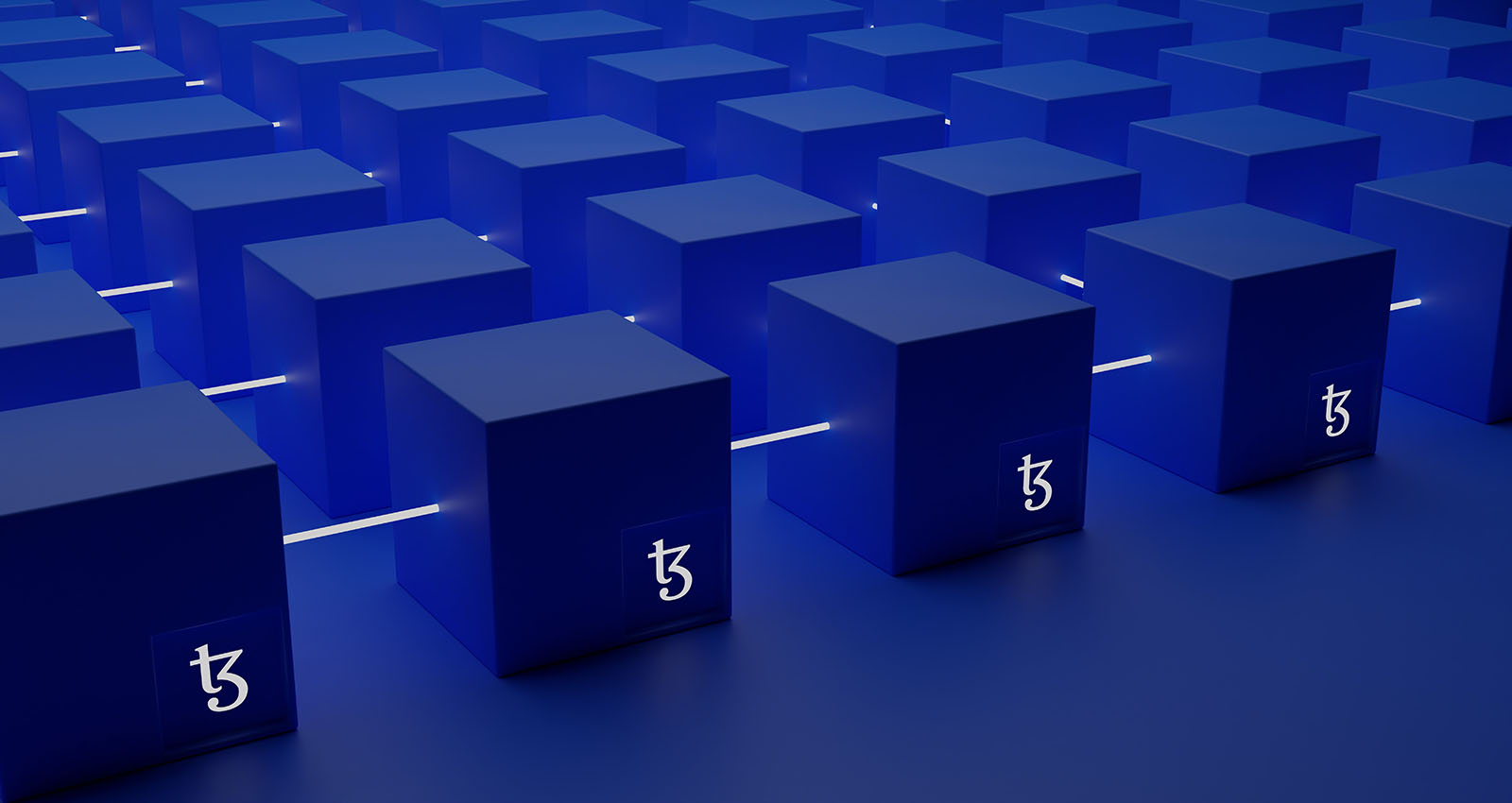During the last year or so, we have been bombarded by new terms coming from the online world: Metaverse, blockchain, Web 3.0, NFTs, DAOs, only to name a few. And just recently, the news got out about Elon Musk buying Twitter, the last big stronghold for online naturists. This covers us in a blanket of uncertainty. Are the days of online naturism officially over? Or will these new changes actually create many new opportunities?
Something you may not know yet is that Nick has a background in IT. And that he can get a bit geeky about these things. As the internet is a very important part of our strategy to promote naturism, we thought that it is time to dive deeper into the philosophies around this new online world and make some predictions about what might happen. Or not.
View this post on Instagram
The blockchain revolution
If these new terms sound as foreign to you as “zungenbrecher” or “kuddelmuddel”, we’ll give you a brief explanation of what is happening. You’ve probably already heard about cryptocurrencies like Bitcoin. Unlike what some people still think, this is not just a way to buy illegal drugs on the Dark Web. Cryptocurrencies are actual currencies, comparable to dollars, euros, and rupees. They can be used to buy stuff in an increasing number of shops. In fact, there’s even a whole village in El Salvador that completely works with Bitcoin.
What does differentiate cryptocurrencies from “regular” currencies is that they work without a central establishment (read: a bank). At first glance, this may seem like a very unsafe environment, but it’s actually the other way around. It’s not that nobody controls the Bitcoin, but that every Bitcoin owner does. We’ll give you an example: If you want to buy something in USD, your bank will check whether or not you have sufficient funds, and based on this, it will approve or deny the transaction. If something happens to your bank, if it goes bankrupt or burns down or whatever, it’s uncertain what will happen to your money.
With cryptocurrency, this check does not happen in one central place, but in many different places all around the world. As there is no central bank, nothing can happen to it. Unless something happens to millions of people worldwide, your money is safe. We won’t go into the technical details, but this principle is called the blockchain.
View this post on Instagram
Will Web 3.0 be the end of censorship?
While the blockchain is mostly known as the foundation of cryptocurrency, it didn’t take long for people to figure out that it could be used in many other ways. To start a new revolution in the internet, for example. Today, the organization of the internet is called “Web 2.0” and it can be compared to a dictatorship. The majority of the online tools that you most frequently use, like Google, Facebook, WhatsApp, Twitter, etc, are in the hands of a few companies in Silicon Valley. And because these tools are owned by companies, they can do whatever they want with them. Even make things illegal that are legal by the government, like nudity.
Although according to US law, it would be perfectly legal for Facebook to allow nudity, they don’t allow it for commercial reasons. Now imagine that the board of directors of Facebook did not exist of 10 people, but that every single member had voting rights. The situation might be completely different. This may sound like a utopia, but it’s not.
Such organizations are called DAOs (Decentralized Autonomous Organizations) and are based on blockchain technology. When you post a picture on Facebook, a person who works for Facebook gets to decide whether it’s allowed or not. If Facebook was a DAO, this check would be performed by millions of algorithms around the world, based on a set of rules that have been defined by millions of users around the world. A much more democratic way, that makes it much more probable that the rules will conform with local laws rather than with what a small board of directors decides.
View this post on Instagram
NFTs to protect our data
Another big issue in the online naturist world is that our content gets stolen. We’ve seen our pictures pop up on naturist websites that never asked our permission and in worse cases, they are completely pulled out of their context and are being put on porn sites. There’s not much we can do about this. Over the years, we’ve all learned that whenever we put something online, it kinda becomes public property. It’s not, of course, but it definitely feels like this.
NFTs (Non-Fungible Tokens) is another one of those buzzwords and is also based on blockchain technology. What it basically means is that you give your content a certificate. This can be applied to any piece of content, a picture, a video, a Tweet, whatever. It gets a token that says it’s yours. These tokens can be exchanged or sold, meaning that the content can change owners. For example, if Lady Gaga would turn the song “Poker Face” into an NFT, we would be able to buy it. And then it would be ours. Not the MP3, but the actual song. The lyrics, the music, everything. We could make it possible that nobody is allowed to play it ever again, which doesn’t sound like such a stupid idea actually.
In an internet that is based on the blockchain, all our content could automatically become NFTs. Meaning that it would be very easy to figure out who owns what, and that technologies could be put in place that prevents others from using your content unless they have the token/certificate. This could mean the end of illegally reusing naturist content.
View this post on Instagram
Online naturism in 3D
When it comes to our online naturist experience, the most promising concept of all is the Metaverse. A term that has become extremely popular thanks to our beloved enemy Mark Z. (Yes, the guy who puts us in Facebook jail and threw us off Instagram). The Metaverse is basically a three-dimensional version of the internet. Instead of typing in a forum or a chatbox, you’ll put on some glasses and find yourself in a virtual naturist resort. You can even own your own mobile home in this resort. Heck, you can even own the resort.
But if the Metaverse is Mark’s, won’t we all be walking around with black squares and smilies in this virtual resort? Not necessarily, because Mark can’t own the Metaverse. It’s a concept, like social media. Mark doesn’t own social media, he owns several social media platforms. Similarly, everyone will be able to own Metaverse platforms. We’ll just have to send our pal George (the technical mastermind behind Naturist Hub) back to school and before you know it there will be a “metaversion” of The Hub where we will all carelessly wander around naked.
Of course, it’s very likely that Mark will try to own some of the first and most mainstream Metaverse platforms. But… and here comes the blockchain again. If the Metaverse will be based on blockchain technology, Mark won’t be setting the rules. The millions of users will democratically vote on them.
View this post on Instagram
Ok, so when do we get all this?
Here’s the bad news: Web 3.0 doesn’t exist yet. At the moment, it’s only a philosophy of how things could be. And nobody can say that it will turn out the way we just described above. But there are signs that this might happen sooner than we think. Facebook changed its name to Meta, and Elon (known to be a fan of blockchain) bought Twitter. It all seems like companies are taking the first steps to prepare themselves for an online revolution.
If Web 3.0 actually becomes a thing, it’s still not sure whether this will mean total freedom for the online naturist or if things will get even worse than they are today (can they?). We’re just trying to read the tea leaves here. In any case, interesting times are ahead of us and all we can do is hope that they will turn out to be in our favor.

Support Naked Wanderings
Do you like what we do for naturism and naturists?
Did we make you laugh or cry?
Did we help you find the information you were looking for?
Then definitely join our Patreon community!






Money in Bitcoins is not safer than at a bank. Lots of Bitcoin exchange platforms have already been hacked and robbed, while in many countries the government provides some sort of bank money protection or you can sue a bank for having lost your money.
NFTs are just a kind of certificate of ownership. With NFTs you might more easily proove that an image is yours, but it won’t stop others from copying your images and using it elsewhere. At best it will be easier for you to get it removed.
The concept of DOAs sound nice, but unfortunately chances are limited that in such a democratic board naturist friendly people will outweight those who don’t like nude content.
True, while crypto in itself is safe, the exchange platforms are not.
About NFTs, we are just seeing the beginning of it. We expect that when they become more mainstream, many more security layers will be added to them. How far this will go and whether or not this will create more security for our content is something we can’t know. We just hope so.
We’re not sure whether in a democracy the naturist-friendly people can’t outweigh the anti-naturists. Because there’s an important segment in between. Let’s say that in a random community there are 10% who are pro naturist and 20% who are against naturism. This leaves 70% who don’t know/don’t care. These are the ones that need to be convinced that it’s harmless.
I probably don’t understand Bitcoin but, from what I think I understand, it seems to me that eventually it will have to collapse.
Bitcoin only works as long as there are miners to process the blockchain. Miners are paid in Bitcoin. The amount of computing power to process the blockchain increases with time. Even now a significant part of energy grid is going to process the blockchain. So you have an energy grid limitation. However, even before that or without that, it would seem that if the value of Bitcoin paid to the miners ever becomes lower than the expense of running the computers to process the blockchain then the miners would have to stop processing the blockchain because they would be losing money. If no miners process the blockchain, then no new transactions can be processed. At that point, wouldn’t the structure collapse and Bitcoin become worthless?
We think that miners will eventually work on a supply and demand basis. When there are too many miners, they’ll all earn so little that it’s not worth it. When there are fewer, they’ll earn more, making it a profitable job/pastime.
The energy consumption of the blockchain is indeed huge. But we trust that this is something that will/can be solved. When the system gets more and more integrated, there will be huge opportunities to create mining racks that are as strong as possible while consuming as little as possible energy for optimal profit. We also imagine that mining companies will pop up that totally run on renewable energy.
As a reference, the internet was good for 8% of the world’s total energy consumption back in 2012. It’s estimated that this will be 20% in 2025. And that’s not just because of the blockchain. Yet, the internet doesn’t seem to be going away anytime soon. Ever since the start of the industrial revolution, new inventions have required increases in energy sources. And we’ve always found a way to make it happen.
I think for it to be beneficial for naturists. You’ll need a majority of decision makers to believe nudity is not inappropriate and a good portion to be sympathetic to the naturist cause.